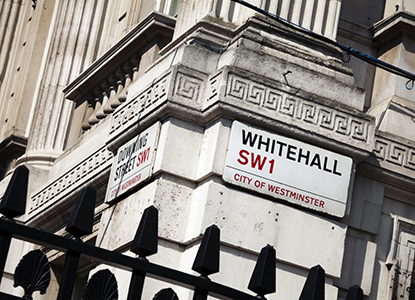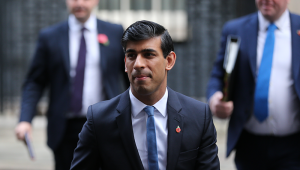
As chair of the Public Accounts Committee I view government through a unique lens and identify common themes across departments.
My latest annual report as chair [which came out] sets out my ten key challenges for government and the issues that I will be keeping a close eye on.
With budgets increasingly stretched and departments being asked to do more for less, we are seeing more and more short-termism.
Decisions made today without regard to the future cost or impact on generations to come, and costs are increasingly being shunted around government.
Such short-termism is evident in the selling of land and assets to plug gaps in budgets.
Little thought is going into these sell-offs, with government giving up long-term control over who will own these assets and how they will be used.
Take Network Rail, one of the largest landowners in the UK which is being required to release £1.8bn in order to plug a £2.5 bn shortfall in its budget.
Most of its assets can’t be sold because they are connected to an operating railway but there is a book sale of management of tenanted property, mostly railway arches, underway on a 999 year lease to help cover the shortfall.
Contract procurement and management is an area where departments don’t seem to learn from their own or others’ mistakes.
Time after time the committee has seen contracts not properly scoped, or let without accurate, complete data for either party to come to a realistic agreement on. And while commercial experience and skills appear to have improved in the centre of government, they are still lacking at department level.
Our Strategic Suppliers inquiry, launched in May, is taking a hard look at how government contracts with its key suppliers.
In the wake of the collapse of Carillion and with other strategic suppliers issuing profit warnings, I hope government and departments will heed our findings.
Local accountability is another key theme of this year’s annual report.
I have highlighted my concerns about Sustainability Transformation Plans for some time now.
These plans to integrate health and social care systems locally failed to put the patient at the heart of its thinking.
‘Shrouded in secrecy and seen as vehicles for spending cuts, these plans needed to be clear with the public from the start what benefits STPs would bring.’
Shrouded in secrecy and seen as vehicles for spending cuts, these plans needed to be clear with the public from the start what benefits STPs would bring.
STPs are now morphing into Integrated Care Systems but we are seeing the same concerns about accountability and governance.
The recent elections of city region mayors and the roll out of devolved funding needs a public accounts infrastructure alongside this to assess how taxpayers’ money is being spent.
I hope the new mayors will consider this and I hope to work with a city region authority to undertake a review of how this might work.
And alongside all these challenges is the biggest challenge of all for government – Brexit.
It is clear from all our work looking at how departments are preparing for our exit from the EU that they are underprepared for the uphill task they face.
We have pushed for detail of departments’ key areas of Brexit work and I have called for government to be clear with Parliament, and the public, what the true costs of our exit will be.
I fear by the time of my next annual report, a lot of these issues will remain.
The key challenge for the Public Accounts Committee is to effect change in government - on the basis of this year’s evidence, we still have some way to go.




















